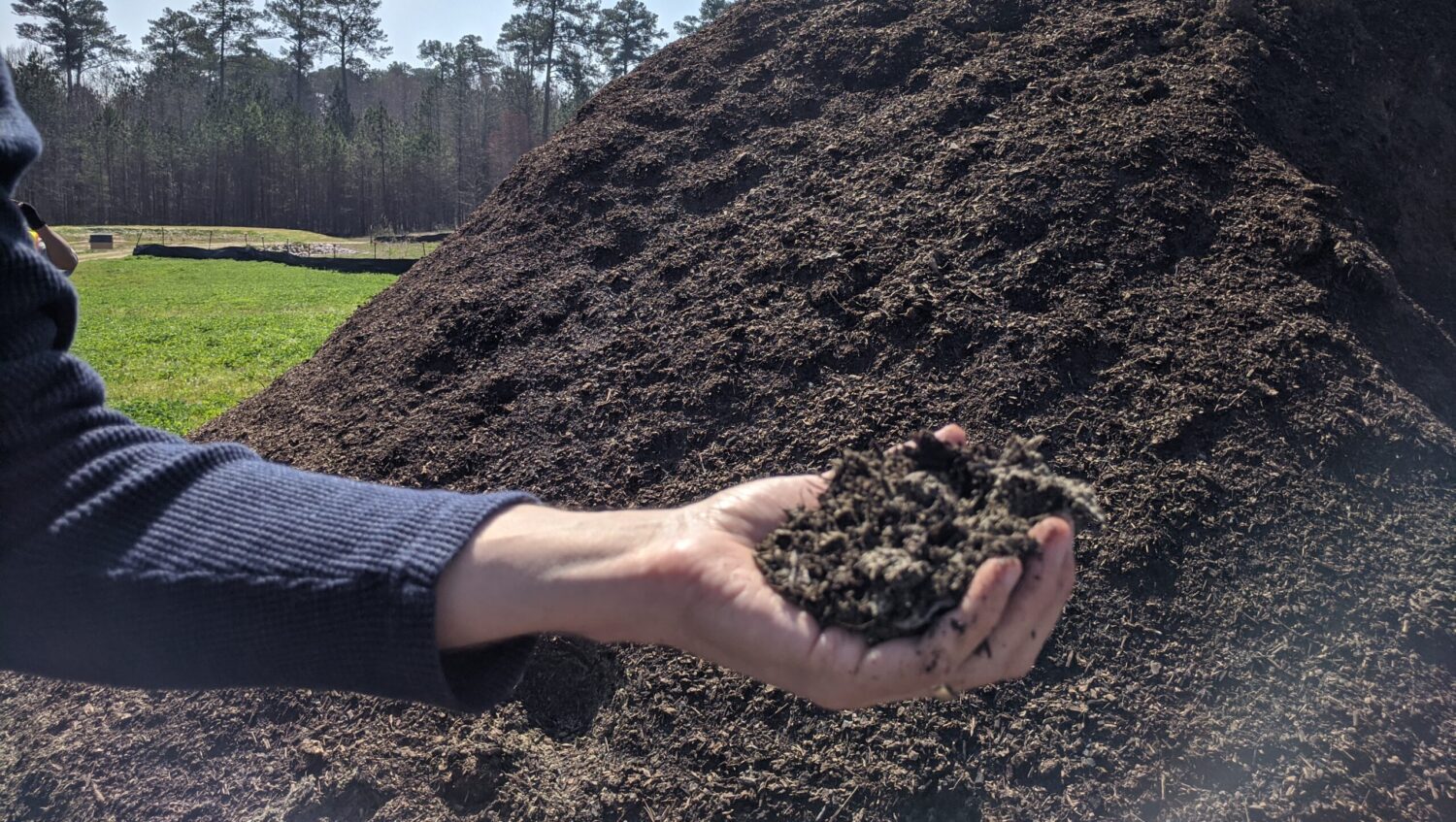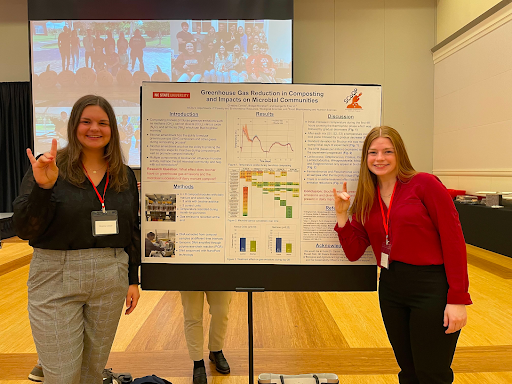Get the Scoop on Sustainable Composting

NC State’s Engineering Sustainable Composting and Outreach Program ((e)SCoOP) is bridging research, education and community engagement. With support from the Sustainability Fund and Campus As A Classroom program, (e)SCoOP’s mission is to support undergraduate research on the intricacies of composting.
(e)SCoOP’s primary focus is to quantify the composition and dynamics of microbial communities throughout the composting process. The goal is to understand how these microbes influence greenhouse gas emissions. Additionally, (e)SCoOP’s research introduces innovative products like biochar, which reduces biosafety concerns and emissions. It can also boost the carbon sequestration potential of compost.
“For most [students], these lab experiences are new and increase their awareness of approaches we can take to improve the efficiency of waste reduction and recycling,” said Dr. Carlos Goller, (e)SCoOP director and Biotechnology Program (BIT) associate professor. “Students bring new perspectives and energy that help them address challenging global questions with local samples.”

(e)SCoOP’s impact extends beyond the laboratory. The program also provides practical recommendations for the safe and sustainable management of organic residues. This involves developing communication tools to tackle contamination and sorting issues at compost facilities. (e)SCoOP also hosts informational events, helping to spark discussions about the critical role composting plays in campus and global sustainability.
“The (e)SCoOP program has been one of the best experiences I have had on campus,” said Jameson Hill, an undergraduate student in Biological and Agricultural Engineering. “It allowed me to experience working in a lab for the first time practicing DNA sequencing. Alongside that, I have met many new friends within my own major that I now work with on various events and projects in the BAE department.”
Currently, (e)SCoOP hosts four undergraduate interns, a graduate student research coordinator and faculty/staff mentors. Projects include examining the growth rate of plants using different bacterial communities in compost, composting of large animal carcasses and researching the impact of textile and electronic waste in compost.
For the latest scoop on (e)SCoOP’s research and events, visit go.ncsu.edu/escoop.